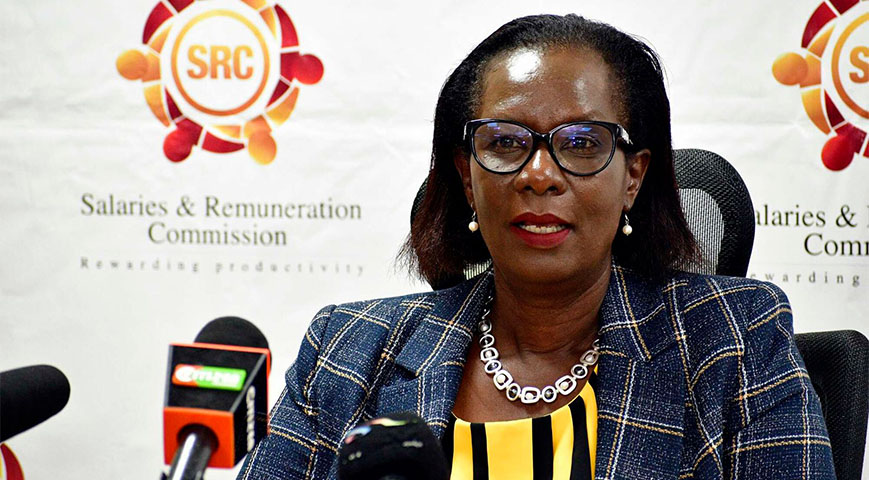The Salaries and Remuneration Commission (SRC) has stopped the anticipated salary increase for State officials.
SRC Chairperson Lyn Mengich said that the commission halted wage increases for Members of Parliament, among others, after negotiations with the National Treasury.

Ms. Mengich attributed the action to the present economic downturn and the 2024/2025 budget cut.
Did you read this?
“In view of the emerging fiscal constraints and the proposed budget cuts and existing contractual commitments and in further consultation with stakeholders including the National Treasury, SRC has reviewed the setting and advise of pay for the second phase of the implementation for 2024/2025,” she said.
“In consultation with the National Treasury, SRC hereby freezes the upward review of salaries for all State officers and will review the advice for all other officers, taking into account the current realities of the economy, any contractual commitment and reduced budget so as to ensure affordability and fiscal sustainability of the public wage bill.”
The SRC chief defended the commission's earlier decision to increase MPs' salaries, claiming it was legal.

Ms. Mengich said that the commission is authorized to examine the wages of all public personnel every two years, and the notice to enhance parliamentarians' compensation was published in August last year.
She also stated that the commission went two years without assessing pay following the onset of COVID-19 in 2020.
“SRC clarifies that the salary increment for State officers has not been newly gazetted as referenced in the media. SRC set and published a gazette notice on August 9, 2023, as part of the 3rd remuneration and benefits review circle for State officers and other public officers that would be implemented over a two-year period over 2023/2024 financial year and 2024/2025 financial year,” noted Ms. Mengich.
“This review came after a two-year freeze on pay structures for the period 2021/2022 and 2022/2023 on account of the impact of COVID-19 on the economy. The remaining two years would be implemented in two phases.”









